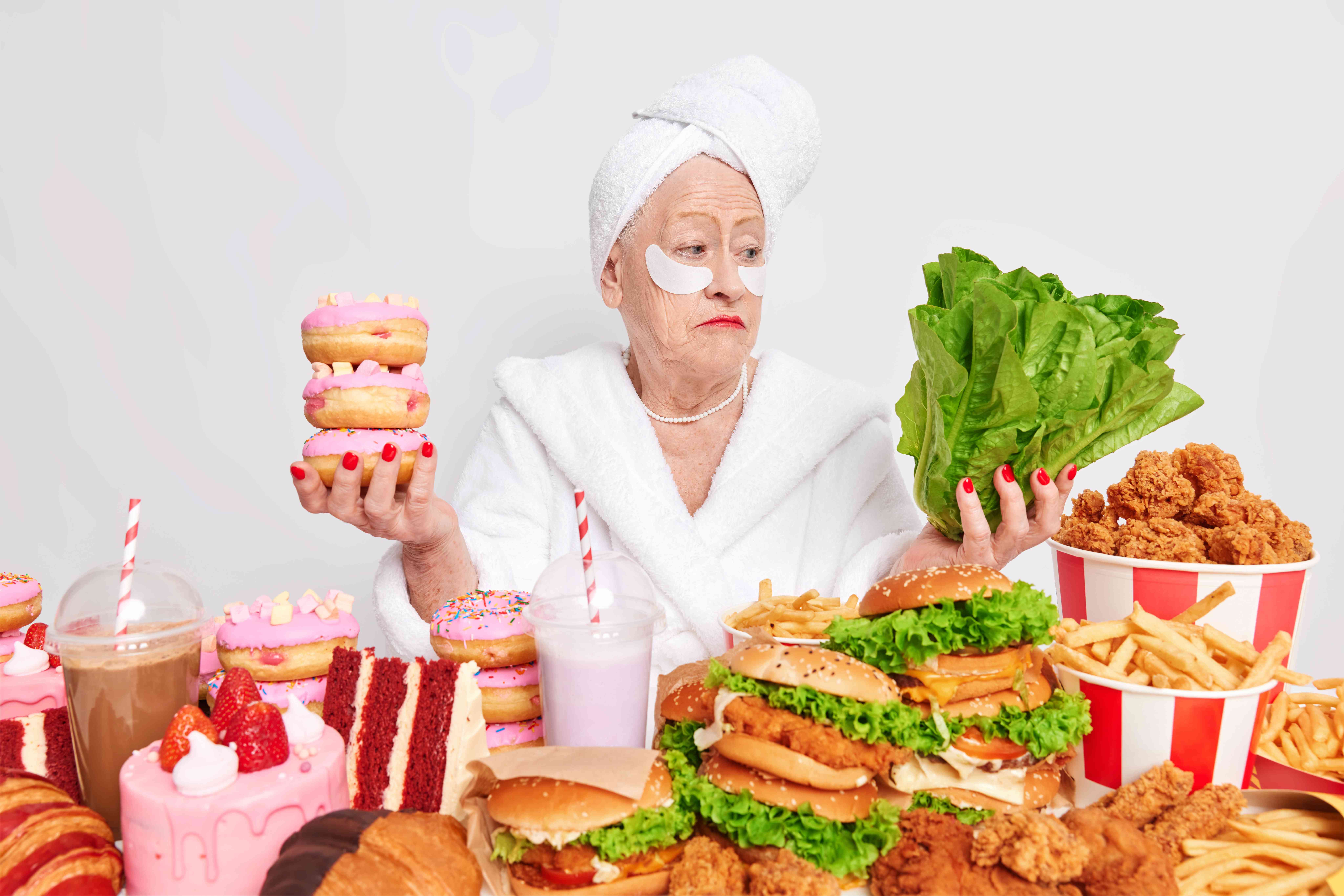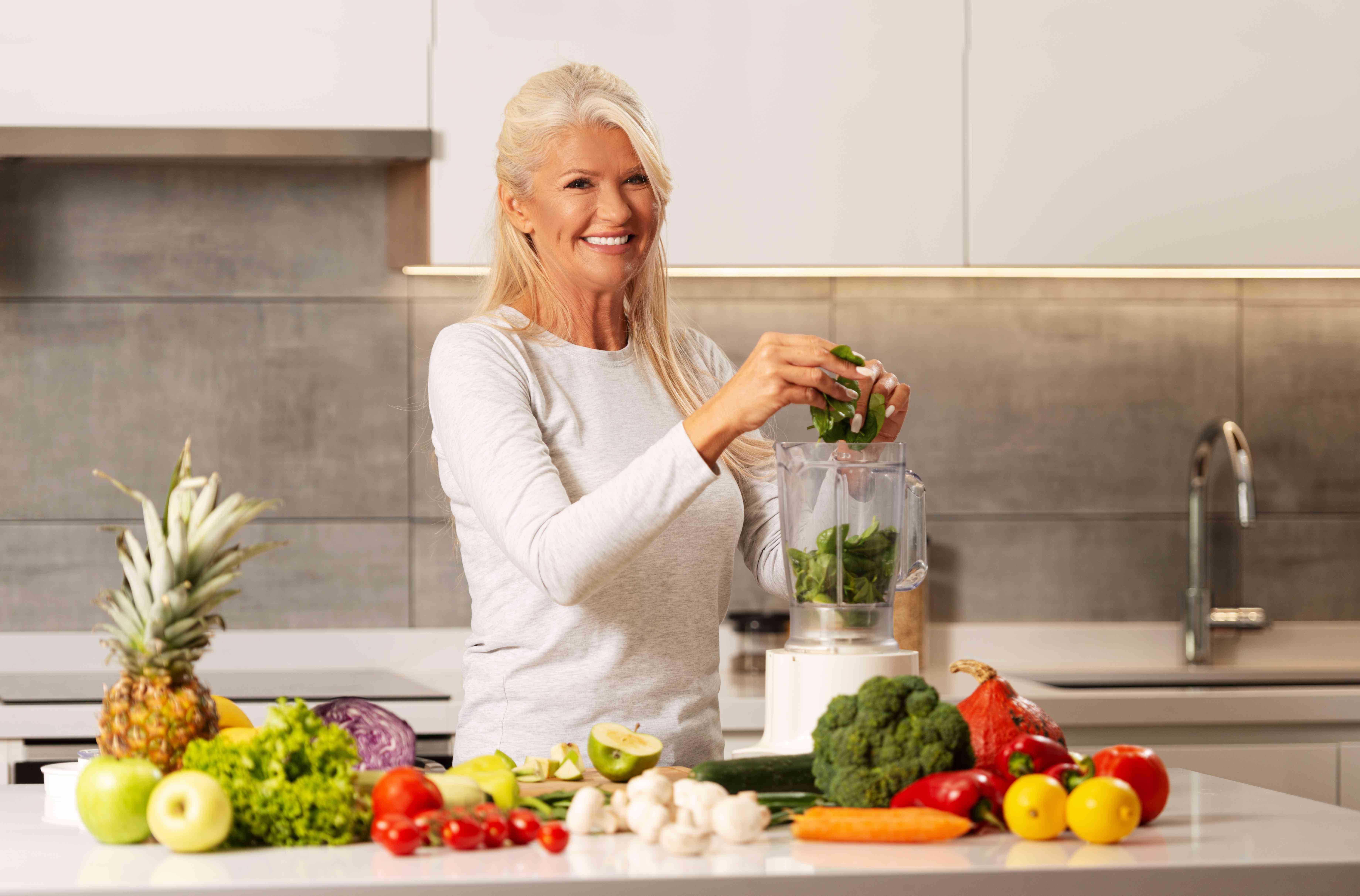

As you age, maintaining a healthy diet becomes increasingly important to support your overall well-being. After all, healthy eating is key to maintaining energy levels, managing weight, and reducing the risk of chronic diseases that can arise in later years. So, how can you ensure you're making the best food choices for your body as you navigate through middle age and beyond?
In this guide, we'll explore the essential nutrients to include in your diet after 50 and highlight specific foods that can help promote healthy aging. We'll also touch on the importance of protein for strong muscles and bones, superfoods that boost your immunity, and heart-healthy foods to maintain cardiovascular wellness.
By the end of this article, you'll have a better understanding of what it takes to eat well as you age and be armed with practical tips to make healthier choices. So let's dive in!
As you age, maintaining good health and vitality becomes a top priority. A healthy diet plays a crucial role in supporting overall well-being and keeping you feeling your best.
Here are some key nutrients to focus on:
Calcium: Essential for strong bones and teeth.
Dairy products: Milk, yogurt, and cheese.
Leafy greens: Kale, spinach, and broccoli.
Vitamin D: Aids in calcium absorption and supports bone health.
Sunlight exposure.
Fortified foods: Milk, orange juice, and cereal.
Fiber: Promotes digestion and prevents constipation.
Whole grains: Oats, brown rice, and quinoa.
Fruits and vegetables: Berries, apples, carrots, and broccoli.
Legumes: Beans, lentils, and chickpeas.
Omega-3 fatty acids: Supports brain health and reduces inflammation.
Fatty fish: Salmon, trout, and sardines.
Incorporating these nutrient powerhouses into your diet can support healthy aging, boost energy levels, and improve overall wellness. So, why not explore delicious recipes like salads with leafy greens, grilled salmon, or fiber-packed smoothies with fruits and veggies? Enjoy nourishing your body as you age gracefully.
Maintaining muscle mass and bone health is crucial as you age, and protein-rich foods can support these goals. Lean meats like chicken and turkey provide high-quality protein and essential minerals.
Fish, such as salmon and tuna, offer omega-3 fatty acids for joint health. Vegetarians and vegans can opt for legumes, tofu, tempeh, and protein-rich grains like quinoa. Incorporating these protein sources into your diet can help maintain muscle mass, improve bone density, and support an active lifestyle as you age.
By including these protein powerhouses in your meals, you can ensure a well-rounded and nourishing diet that supports your overall health and vitality in middle age and beyond.
As you age, it becomes even more crucial to support your immune system and protect your overall health. That's where superfoods come in! These nutrient-dense powerhouses are packed with antioxidants, vitamins, and minerals that can give your immune system a boost.
Berries, such as blueberries, strawberries, and raspberries, are not only delicious but also packed with antioxidants that help fight inflammation and protect against chronic diseases.
Additionally, incorporating leafy greens like spinach and kale into your diet provides essential vitamins A and C, as well as fiber for digestive health.
Garlic, turmeric, and ginger have long been used for their immune-boosting properties. Garlic contains compounds that can enhance immune function, while turmeric's active ingredient curcumin has potent anti-inflammatory effects. Ginger helps reduce inflammation and supports healthy digestion.
Don't forget about green tea! It's loaded with polyphenols that have been shown to improve immune function and protect against diseases like cancer.
As you age, it's important to keep your heart healthy and strong. A nutritious diet plays a vital role in maintaining cardiovascular wellness. By incorporating heart-friendly foods into your meals, you can support your heart health and overall well-being.
Whole grains are a great addition to your diet. They are rich in fiber, which helps lower cholesterol levels and reduce the risk of heart disease. Opt for whole wheat bread, brown rice, and oats.
Nuts and seeds are packed with healthy fats, vitamins, and minerals that benefit your heart. Almonds, walnuts, flaxseeds, and chia seeds are excellent choices. Including a handful of these in your daily snack routine can do wonders for your cardiovascular health.
Fatty fish like salmon, mackerel, and trout are high in omega-3 fatty acids, essential nutrients that promote heart health by reducing inflammation and lowering blood pressure. Aim to have at least two servings of fatty fish per week.
Olive oil is another heart-healthy ingredient to include in your cooking. Its monounsaturated fats help lower bad cholesterol levels while increasing good cholesterol levels.
By incorporating these heart-healthy foods into your diet, you can support cardiovascular wellness as you age gracefully.
In this guide, we've explored the importance of healthy eating after 50 and how it can positively impact your overall well-being. By making smart food choices, you can support healthy aging and enjoy a vibrant, active lifestyle. Here's a recap of the key points covered:
A well-balanced diet that is rich in essential nutrients is crucial for maintaining good health as you age.
Consuming nutrient-rich foods can help support healthy aging by providing the body with the necessary vitamins, minerals, and antioxidants it needs to function optimally.
Protein is important for maintaining muscle mass and bone health. Include lean meats, poultry, fish, legumes, dairy products, tofu, tempeh, quinoa, and lentils in your diet to ensure an adequate protein intake.
Incorporating superfoods into your diet can boost your immune system and promote overall health. Berries, leafy greens, garlic, turmeric, ginger, and green tea are great options to consider.
Heart-healthy foods like whole grains, nuts, seeds, fatty fish rich in omega-3s like salmon or mackerel, and olive oil are beneficial for cardiovascular wellness.
Remember to consult with your healthcare provider or a registered dietitian for personalized dietary recommendations that suit your unique needs. By nourishing your body with a varied and nutrient-rich diet at 50 and beyond, you'll be well-equipped to enjoy life's adventures!
Disclaimer: The information provided in this article is for general informational purposes only. It should not be considered as a substitute for professional advice, diagnosis, or treatment. Always consult with qualified professionals regarding any questions or concerns you may have about your specific health situation. Reliance on any information provided in this article is solely at your own risk. We do not endorse or recommend any particular products, services, or treatments mentioned.
